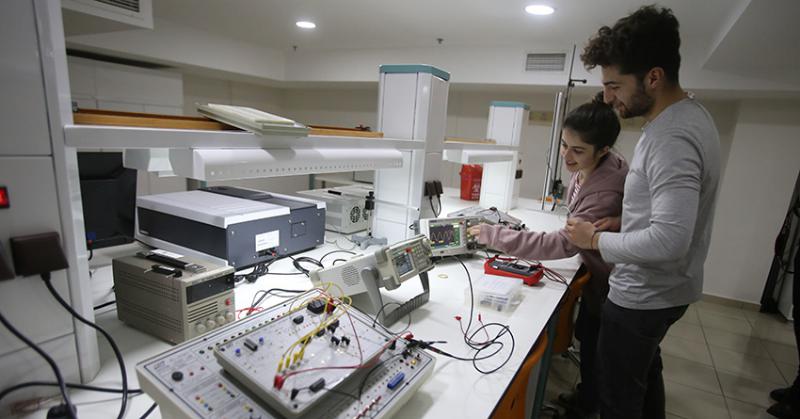About Electrical and Electronics Engineering Master of Science Program
Üsküdar University Educates the Engineers of the Information Age…
What is the Master of Science Program in Electrical-Electronics Engineering?
The aim of the Master of Science Program with and without thesis is to provide Electrical-Electronics Engineers with education in the light of new technological developments and to help them become qualified electrical and electronics engineers in their fields.
Another goal of the program is to meet the need for qualified Electrical-Electronics Engineers for research and development to push the boundaries of technology and science in our country.
Who can apply to the Master of Science Program in Electrical-Electronics Engineering?
Graduates of Electrical-Electronics Engineering, Electronics Engineering, Electronics-Communication Engineering and related sciences can apply to the program.
What courses are taken in the Master of Science Program in Electrical-Electronics Engineering?
Electrical-Electronics Engineering Master of Science program with thesis consists of at least 8 courses, 1 seminar course and the thesis. Course work cannot be less than 24 credit hours and 128 ECTS.
Electrical-Electronics Engineering Master of Science program without thesis consists of at least 11 courses and a term project course. A total of 33 credits and 116 ECTS.
Students from different disciplines take prerequisite courses depending on their readiness for the program.
What are the Fields of Study for Electrical-Electronics Engineering Graduates?
The courses offered by the department forms the foundation for the following disciplines, which are the application fields of Electrical-Electronics Engineering:
Computer systems and communication networks
Mobile communication and wireless networks
Optical and microwave communication
Integrated electronic systems
Advanced robots and intelligent machines
Video and image processing systems
Quantum devices and quantum computation
Production and transmission of electrical power
Electromagnetic compatibility
Renewable energy systems










